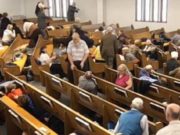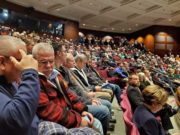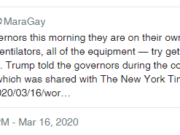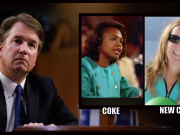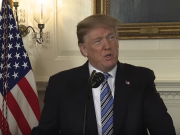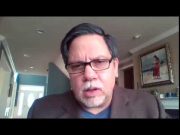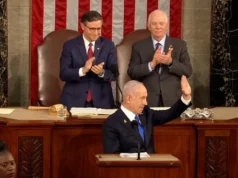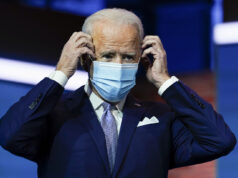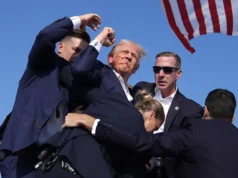The vast majority of teachers in our public schools are doing a fine job against difficult odds, working under conditions few of us understand or appreciate. Let’s start there, with the truth. Teachers don’t get to pick their students. Our public schools take everyone, and in many areas of this country, they are on the front lines of social, economic, racial, political, and criminal upheaval. It is likewise true that as with every other occupation or profession, teachers range across the curve of talent. That’s reality. Most teachers, like most other workers, rate themselves a bit more valuable than any us really are, that too is the truth. One more truth worth noting here is that in a national conversation on education policy, we are too emotional and too uninformed to make progress.
The DeVos nomination once again opened a festering wound between a population that wants the very best of public education, and unions and teachers who share that view, but who believe they alone have the expertise and knowledge to make policy decisions. American public education is not the best. That is another truth. Of course, across this great country, we have some of the best public schools in the world, and we have schools that our soldiers wouldn’t enter with backup. That’s more truth. Public schools reflect the public. Our public is quite broken, and our teachers have the task of teaching everyone, broken or not.
In this national discussion over education and potential reform, one great myth has made the conversation more difficult. Anger and blistering posts and rebuttals across social media lay bare the dual reality that many cynics about our education system understand little about the challenges teachers face, and many teachers wrongly think that skeptics are all anti-teacher. Much of this acrimony springs from the myth the NEA and its various sub-chapters created that the unions and the teachers are in this for the children … and that they have both a superior knowledge and moral calling that cannot be questioned.
It is 100% true that every decent teacher you know is interested in the success of his or students and the overall performance of their institution. Likewise, because they are in the trenches of education, both as classroom teachers and as those on whom various mandates fall. As such, they have a broader perspective than most of us on many issues. We are liars not to concede that point.
The breakdown in this conversation is, and has always been, that many teachers refuse to admit or accept that their unions represent the best interest of teachers … and that the interest of paid employees … including job protection, salary, work rules, due process, and other rights are sometimes at odds with the best interest of the children. Indeed, those issues are often at odds with the efficient administration of and teaching that takes place in institutions.
Teachers believe that because they are pure of heart with respect to their job, that all they do is in the interest of the children. In short, the same myth that the unions and associations have sold the public, they have sold teachers who are actually the truest believers. That is why any discussion of education reform with teachers is a hard conversation. They take it personal, like an attack on their character or religion. When GM wants to change work rules to increase efficiency, union members may disagree with the proposed rules. They may even think the rules hurt them economically, but few think it is a personal attack on workers because the company and the public hate their employees. The suggestion that we change how we deliver education to our children and the choices and costs involved in those suggestions are not personal assaults on every teacher.
The false and reckless belief that being a teacher in the current system makes one an expert on education policy is just as false and reckless as the belief that some have that teachers’ perspectives on classroom issues and mandates are valueless or irrelevant. Teacher have the critical information essential to education reform, but they are not the sole holders of educational knowledge and policy. If that were true, an industry controlled by teachers, unions, associations, and career educationalists would be thriving. It is not.
With respect to the fight over Ms. DeVos … I am a conservative. So, I don’t even want a US Department of Education. I’d rather have those decisions and dollars made and used at the state and local level as intended in our Constitution. Ironically, nothing would empower teachers more than that. But Ms. DeVos is the choice of a president who just won election. He wants to make changes, and he wants the people he thinks can best help him make those changes. It is rare indeed that a new President doesn’t get his own people to make policy. Fight the policy all you want, but Mr. Trump was never going to put an education insider or lifer into the position when he wants change that such a career educationalist does not. What these unions are doing is asking to overturn election results to get a union acceptable member in the job to fight against the President … or they want to delegitimize the appointee to stop change. Is that in the best interest of the children? If you find yourself fighting change, innovation, and choice in education, you probably are representing the primary interest of a person or group other than children.
The notion that our education system will now be destroyed because Ms. DeVos was approved is idiotic. It’s embarrassing. Education policy and nearly all k-12 funding runs through states and local budgets, as it should. Choices will still be made locally. Yes, there will be a push for school choice, charter schools, innovation and competition. That’s been going on for decades. Ms. DeVos will have only a marginal role in making substantive changes on those issues. The panic pushing is insane.
Truth be told, school choice and competition is about as American a concept for which one can hope. The arguments against it are nearly always about job protection and not children. Yes, some of these initiatives are not a panacea. I get it. If sophisticated parents living in districts with unsafe or poor performing schools want to leave, when they do they will leave behind a public school that gets worse. Teachers and kids will have to deal with that. That too will require both innovation … but far more importantly … a cultural change and shift back to families, faith, and the civil society. None of that is controlled by a single teacher, President, or Sec. of Education.
At the end of the day, discussing what’s best for our education system … which everyone agrees is not the best … is not a personal assault on teachers. Likewise, the conversation is less productive when those who don’t understand the issue, have never been part of it, never taught, don’t know the mandates, and have no knowledge of the policy, law, and constraints, let alone the difficulty of the job … dismiss teachers as the problem. We don’t need that. We likewise don’t need teachers taking every credible discussion as a personal attack. And, if we learn nothing from our national conversation, we must learn that teachers’ unions represent workers, not kids.
This is a teachable moment for all of us. As it turns out, discussions on education policy require thoughtfulness, knowledge, truth, and respect, attributes missing in most policy and political conversations.
Author: Richard Kelsey
Richard Kelsey is the Editor-in-Chief of Committed Conservative.
He is a trial Attorney and author of a #11 best-selling book on Amazon written on higher education, “Of Serfs and Lords: Why College Tuition is Creating a Debtor Class”
Rich is also the author of the new Murder-Mystery series, “The ABC’s of Murder,” book one is titled, “Adultery.”
Rich is a former Assistant Law School Dean and Law Professor. At Mason Law Kelsey conceived of, planned, and brought to fruition Mason’s Center for the Protection of Intellectual Property, known as CPIP, drawing on his expertise as a former CEO of a technology company specializing in combating cyber-fraud.
In 2014 he was elected by the graduating class as the faculty speaker at their graduation.
He is a regular commentator on legal and political issues in print, radio and on TV. Rich has appeared on hundreds of stations as a legal expert or political commentator. He provided the legal analysis for all stages of the Bob McDonnell trial and appeal for numerous outlets including NPR and WMAL.
Rich also writes on occasion for the American Spectator and CNSNews.com.
In his free time, Rich is part of the baseball mafia of Northern Virginia, serving on numerous boards and as a little league and travel baseball coach.
His Twitter handle is @richkelsey.





